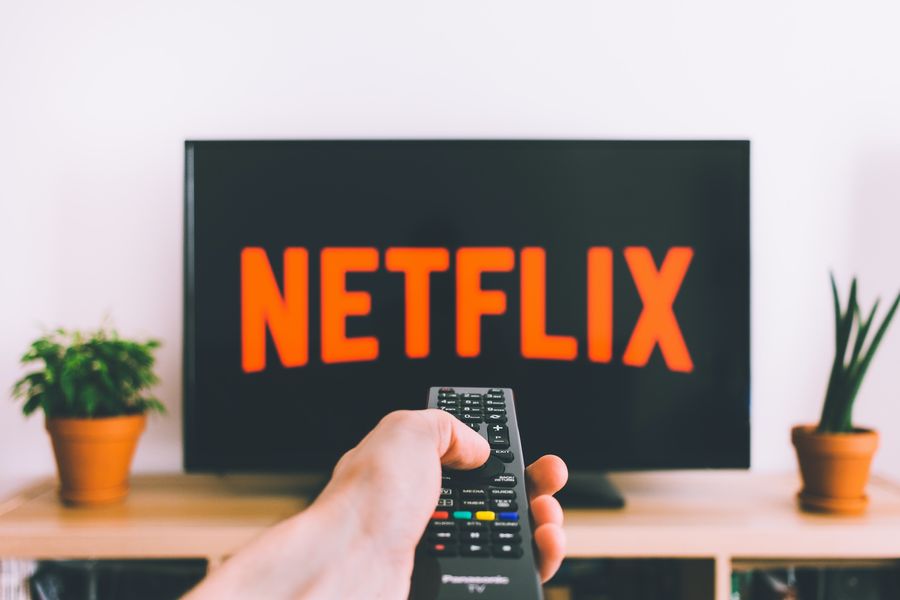Bridgerton season two arrived on Netflix today. Fans are excited for the much-awaited fourth season of Stranger Things and the fifth season of The Crown, both of which are slated for a 2022 premiere. Amidst the host of a variety of Original content, namely documentaries, films and TV shows, Netflix is reeling under the unfathomable success that Squid Game amassed for it in 2021. However, public opinion regarding the streaming service is at an all-time low. Various news outlets have been questioning if the streaming service, let alone its premium subscription, is really “worth it”. Stock prices keep fluctuating and the reputation of the streamer is on the line. Or is it?
Recently, Netflix realised how it has reached an all-time subscriber peak in the United States, Canada, UK & Ireland etc. To combat the excess competition from other streaming services in the race, Netflix decided to raise subscription prices in these countries. They reasoned that a hike in price would help them invest more in the quality of content and get their creative juices flowing. However, in countries like India, the streamer decided to lower prices to reach a wider demographic, given the low number of household subscriptions.
In the United Kingdom, the standard package rose from £1 to £10.99 while the premium subscription that allows UHD streaming and downloads has gone up from £2 to £15.99 in the UK. In the United States, the premium plan has increased by $2, from $17.99 to $19.99 per month. To restructure their business module, the streamer also decided to curb password sharing by testing out new features in Central and South America that would prevent multiple households from sharing the same Netflix account.
Netflix was initially a video rental service in California in 1997 before which it became an internet-based streaming service in 2005. In 2007, they began their streaming journey, before beginning to add Original content, in addition to other studio content in 2015. Now, as a full-fledged studio, the streaming service has been reigning supreme in the world of streaming platforms. With shows like Sex Education, Money Heist, Stranger Things, The Crown, Top Boy, Squid Game, Never Have I Ever, Elite etc., the streaming service has been lauded for its brilliant content and diverse and inclusive casting.
Though initially shunned, they have managed to incur the trust of big shot filmmakers and churn out films like Alfonso Cuaron’s Roma, David Fincher’s Mank, Martin Scorsese’s The Irishman, Ava DuVernay’s Mudbound, Noah Baumbach’s Marriage Story and more. Recently, they won 27 nominations at the Academy Awards with films like Don’t Look Up, The Power of the Dog, The Lost Daughter etc. If Jane Campion’s The Power of the Dog ends up grabbing the Best Picture gong at the awards, it will carve out a legacy for Netflix and pave the way for the future filmmakers, endorsed by the studios, to dream.
While people have been grumbling about the prices that are not proportional to the quality of the content, it is important to realise that nothing comes cheap. For long, the idea of a poor artist has been glorified and poverty in art normalised. The people who work tirelessly on the sets of these Netflix productions need to be paid adequately for their labour. They work odd hours, in the harshest weather, never complaining, always tending to the script, to churn out quality content for the audience. While a lot of it does not live up to the mark or to the expectations, it is important to acknowledge and appreciate the hard work that goes into every production.
For example, the streamer has recently revelled in the success of its true-crime films and docu-series. From exposing the flabbergasting Ponzi scheme run by Simon ‘Leviev’ Hayut in The Tinder Swindler to examining the complicated psyche of Anna Delvey in Inventing Anna, from talking about gruesome grannies and other roguish roommates in Worst Roommate Ever to discussing veganism, immortality and fraud in the latest bizarre limited series Bad Vegan: Fame. Fraud. Fugitives., the streamer has an extraordinary legion of creative geniuses who manage to take the viewers on a visual journey that explores the darkness of the human mind. While awards and accolades serve as good sources of appreciation, the subscription money helps the company’s cogwheels turn and feed the mouths who relentlessly help make these films, shows and more.
While Netflix has often been accused of relying on legacy viewing, it is entirely not true. While a certain chunk of its subscribers come for shows like Stranger Things, Bridgerton, Money Heist etc., a bigger chunk of viewers are interested in venturing into the unknown and trying unexplored, fresh content; thus the massive success of Korean shows like Squid Game and All Of Us Are Dead.
Given the inflation in the United Kingdom, it is understandable if people no longer want to stick to the premium subscription. While the standard allows two streams and downloads on two offline devices, a premium subscription allows up to four devices. Now that most people have a Netflix subscription, one can manage to stick to a standard plan. Netflix does not charge extra for changing plans. However, cancelling a subscription entirely for its allegedly poor content seems unnecessary because even at its worst, Netflix is better than the best.
